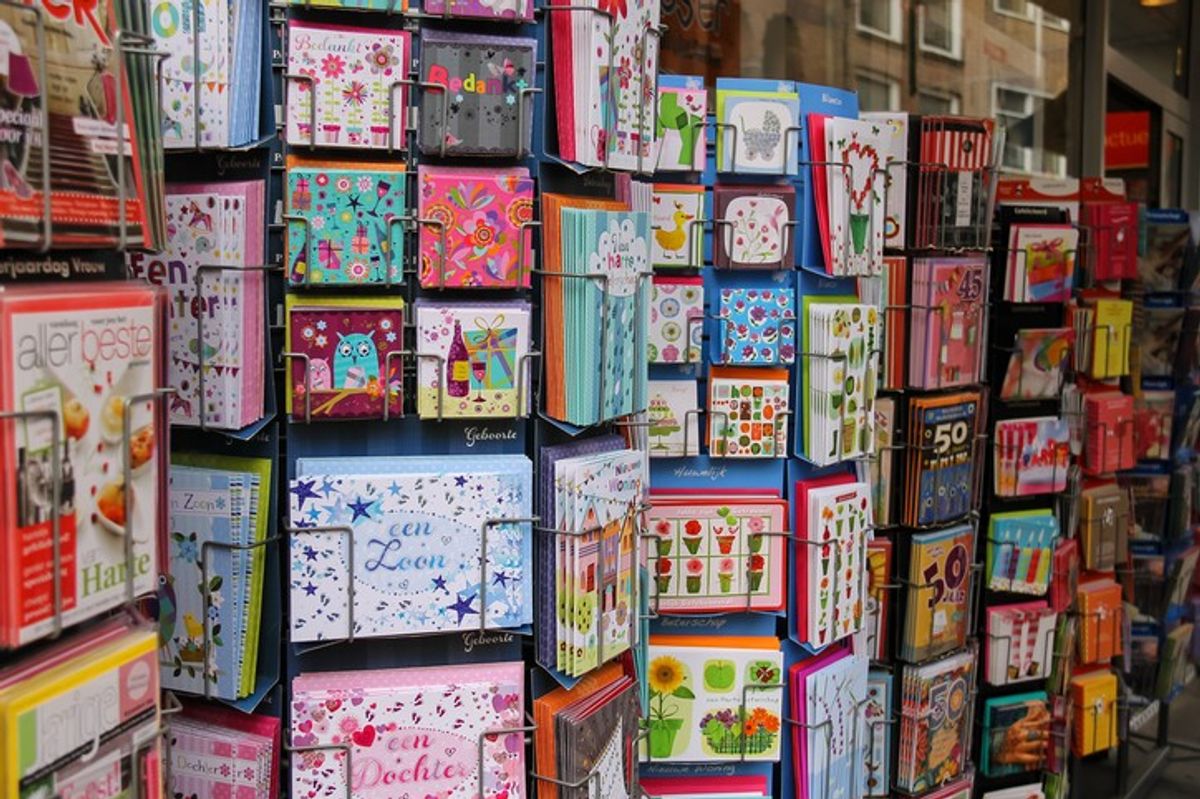More than half of Brits wish they received more greeting cards, as emerged in a new survey.
According to a recent survey by greeting card experts Moonpig, more than half of UK adults are very likely (55 per cent) to buy a birthday card for a friend. The research found that women (66 per cent) are almost twice as likely to buy their friends a card than men (34 per cent).
Not only that, but the older generations are more likely to buy cards than the younger generations. More than two-thirds (67 per cent) of Brits aged over 65 are very likely to buy a birthday card for their friends in contrast to only a quarter (25 per cent) of those aged 18 to 24.
The majority of Brits prefer physical cards over virtual well-wishes, claims the survey report. If Brits could choose to receive a physical or virtual card for a milestone in their life, more than half (52 per cent) of respondents would prefer to receive a physical card. The research found that two in five (40 per cent) men and almost two thirds (63 per cent) women would prefer to receive a physical card.
Only one in seven (13 per cent) Brits said that they would prefer a virtual message to celebrate their birthday. The preference for virtual greetings was significantly higher for younger generations with a quarter (25 per cent) of 35 to 44 year olds opting for a virtual message and only 3 per cent of over 65s agreeing.
Almost three in five Brits would like the greeting cards that they receive to have handwritten messages. The research from Moonpig found that not only do Brits prefer physical cards when celebrating milestone moments in life, but they also have a preference for handwritten messages as nearly three in five (59 per cent) of those surveyed they preferred handwritten messages in their cards.
Interestingly, women in particular were found to have a higher preference for handwritten messages with over two-thirds (69 per cent) opting for them in comparison to under half (48 per cent) of men.
Older respondents also have a significantly higher preference for handwritten messages in cards with over two-thirds (67 per cent) of over 55 year olds preferring handwritten messages in their cards. In contrast, Brits aged 25-34 have a higher preference for cards based on their interest (33 per cent) and cards with personalised images (33 per cent).
The research found that the second most favoured feature of greeting cards among Brits is the card design itself. Nearly a quarter of Brits (22 per cent) have a strong preference for cards that appeal to specific aesthetic design choices including typography, comedic or stylistic design elements. This is followed by a card design based on the recipient’s interests such as favourite sport, celebrity, TV show or movie, which is preferred by a fifth of Brits (20 per cent).
Sarah-Jane Porter, global design & licensing director at Moonpig, comments, “We know how much of an impact receiving a card can have on a person, with many feeling truly loved and appreciated – something which is cherished even more when celebrating those extra special milestone moments in your life.
"We also know that it’s not just the sentiment of receiving a card which means so much to people but also how personalised and tailored to the recipient the card is, which is why our handwriting feature is so popular with our customers as it really allows people to show just how much care and attention they have put into selecting the card – making it feel even more like a gift for the recipient."


